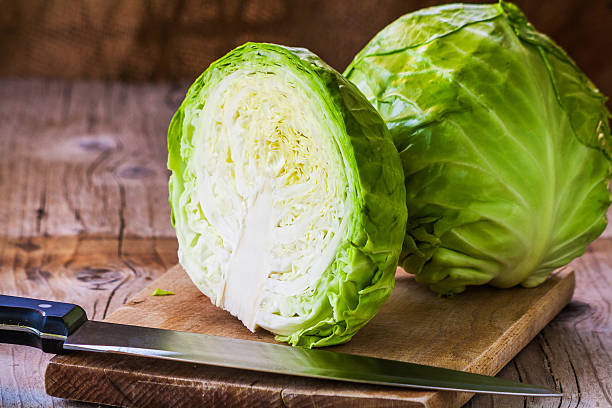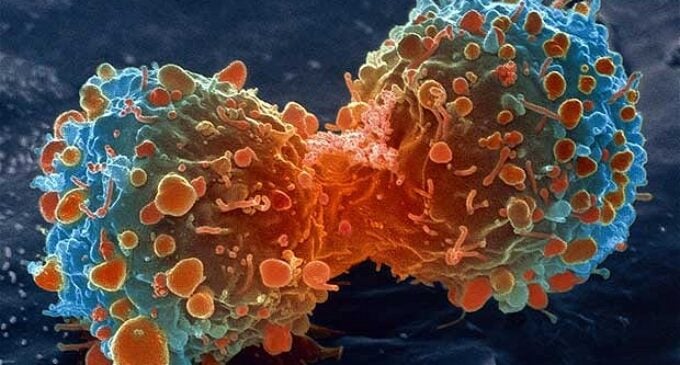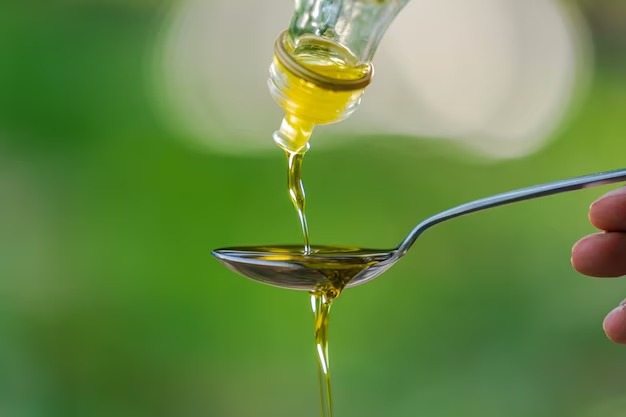Health
Cabbage, broccoli… vegetables that lower risk of heart disease, stroke

Eating vegetables may help older women keep their blood vessels healthy, thus reducing risks of heart diseases, says a study conducted by Australian researchers.
The study said the biggest benefit comes from cruciferous vegetables, including cabbage, brussels sprouts, cauliflower and broccoli.
Eating these strong-smelling veggies is linked to less thickening of the carotid arteries located in the neck, the study said.
“These findings reinforce the importance of adequate vegetable intake to reduce your risk of atherosclerosis [“hardening of the arteries”], heart attacks and strokes,” said lead researcher Lauren Blekkenhorst.
“Recommendations to include a couple of servings of cruciferous vegetables may optimize the health benefits of increasing vegetables in the diet.”
Almost 1,000 women aged 70 and above were asked to fill out questionnaires about how often they eat vegetables.
The vegetables consumed by the participants included onions, garlic, leeks, shallots, beans, leafy green vegetables, cruciferous vegetables and yellow, orange or red vegetables.
The women said the frequency of consumption ranged from never to three or more times a day.
The researchers used sonograms to measure the thickness of each woman’s carotid arteries and the amount of plaque they contained.
The findings showed that the carotid artery walls of women who ate the most vegetables were about 0.05 millimeter thinner than those who ate the fewest.
That difference might be significant, Blekkenhorst said, because a 0.1 millimeter decrease in carotid wall thickness was linked to a 10 to 18 percent lower risk of stroke and heart attack.
Blekkenhorst explained that vegetables, whether raw or cooked, are good for the health, because of their high fibre content which makes you feel full without consuming many calories.
She said the benefits found in the study were limited to vegetables like cabbage, Brussels sprouts, cauliflower and broccoli, adding that other vegetables did not show the same protective link.
The researchers, however, said it wasn’t clear whether men also gain these benefits from vegetables.
“We cannot be certain that the findings will be the same for older men, as the risk factors for vascular disease are different for men and women, but it can’t hurt for men to consume more cruciferous vegetables every day,” said Samantha Heller, the study co-author.
Health
Scientists discover blood proteins that could warn of cancer years before diagnosis

Scientists in the UK say they have found proteins in the blood that could warn people of cancer more than seven years before it is diagnosed.
In two studies funded by Cancer Research UK, scientists identified 618 proteins linked to 19 types of cancer, including colon, lung, non-Hodgkin lymphoma and liver.
The proteins included 107 associated with cancers diagnosed more than seven years after the patient’s blood sample was collected, and 182 that were associated with a cancer diagnosis within three years.
In the first study, scientists studied blood samples from more than 44,000 people in the UK Biobank, including over 4,900 people who subsequently had a cancer diagnosis.
They found the proteins by comparing those present in people who did go on to be diagnosed with cancer and those who did not.
In the second study, the scientists looked at genetic data from over 300,000 cancer cases to find which blood proteins were involved in cancer development and could be targeted by new treatments.
The scientists found 40 proteins in the blood that influenced someone’s risk of getting nine different types of cancer.
The scientists concluded that some of these proteins could be used to detect cancer much earlier and potentially provide new treatment options.
‘FURTHER RESEARCH REQUIRED’
They however cautioned that further research is needed.
Ruth Travis, senior author of both studies, said to be able to prevent cancer, there needs to be an understanding of the factors driving the earliest stages of its development.
“These studies are important because they provide many new clues about the causes and biology of multiple cancers, including insights into what’s happening years before a cancer is diagnosed,” she said.
“We now have technology that can look at thousands of proteins across thousands of cancer cases, identifying which proteins have a role in the development of specific cancers, and which might have effects that are common to multiple cancer types.”
Health
Scientists say a spoon of olive ‘anointing’ oil a day can save your life

In many Nigerian churches, olive oil is used as a spiritual means of healing; it’s called anointing oil. It does have healing properties, though it’s not necessarily spiritual.
The benefits of a spoon of olive oil
The Mediterranean diet—a diet rich in olive oil—causes better brain health and lowers heart disease risk. You can replace vegetable oil with olive oil for a healthier life.
Researchers found that replacing margarine or mayonnaise with olive oil daily reduces the risk of dementia death by 8–14%, but this benefit was not observed when using other vegetable oils or butter.
A scientific study with over 92,000 participants showed that a spoonful of olive oil might be linked to a reduced risk of death from dementia, regardless of whether the person had a good or bad dieting habit. People who included at least half a tablespoon (seven grammes) of olive oil daily saw a 28% lower risk of death than those who didn’t regularly consume it.
According to the researchers, olive oil’s antioxidant qualities may have an impact on why it contributes to longevity. These components may pass the blood-brain barrier, thereby directly affecting the brain and cardiovascular health, respectively.
Health
One in 12 men tested in Lagos showed signs of prostate cancer, says Goke Akinrogunde

Goke Akinrogunde, a medical practitioner and chairman of the honorary members’ forum of the Nigeria Air Force Officers’ Mess (NAFOM) Ikeja, says one in 12 men tested in Lagos showed signs of prostate cancer.
WHAT IS PROSTATE CANCER?
The prostate is the walnut-sized gland found in males.
It is located just below the bladder and in front of the rectum, surrounding the urethra — the tube that carries urine out of the bladder.
The prostate makes some of the fluid that is part of semen.
When a man has prostate cancer, it means the cells in the prostate gland have begun to grow out of control.
It is unclear what causes these cells to grow out of control.
CREATING AWARENESS
Akinrogunde spoke at the HMF-NAFOM annual general meeting on Wednesday. The event held at the Sam Ethan Airforce Base, Ikeja.
The event which had A. I Sambo, president of the mess committee (PMC), and T. Abu, the base’ commander, in attendance, featured a health session themed: ‘Men’s health, women’s concern: erection and prostate matters’.
The HMF is the honorary civilian wing of the air force officers’ mess.
Akinrogunde noted that the meeting serves as an avenue for socialisation between the military and civilian members of the mess.
He emphasised the importance of addressing the health and wellness of older men, while citing the prevalence of prostate cancer in Nigeria as the rationale for the theme.
“This meeting is a good opportunity for the civilian and military members of the mess to interact. As civilians, we are in the civil society, it is important that we think of what will be beneficial to both segments of the mess and hence the topic,” he said.
“Prostate health is always very relevant and while the discussion might not be common, prostate cancer is quite common in out society. For example, there is a study that was conducted in Lagos sometime which shows that one out of twelve men tested showed signs of prostate cancer.
“This is a good opportunity to bring the awareness to our people.”
Taiwo Alabi, the guest lecturer, who was represented by Tunji Olakunle, an endourologist, said factors directly linked to the occurrence of prostate cancer include race, age and genetics.
He added that men aged 40 and above are encouraged to conduct the baseline prostate specific antigen (PSA) test every six months to detect the likely occurrence of prostate cancer.
He encouraged members to practise safe sexual activities and to seek appropriate medical intervention where necessary.
The event saw the inauguration of new executive members of the HMF by A. I Sambo.
The executive inaugurated included Goke Akinrogunde as the chairman; Bello Olanrewaju as the vice chairman; Azubuike Chuks as the general secretary; Adesina Babatunde as the treasurer; Uzu Onyeka John as the entertainment officer; Sokoya Olufemi as the public relations officer; and Shina Badaru as the chief adviser.
The PMC also awarded TheCable newspaper the ‘numero uno corporate partner’ for its corporate social responsibility (CSR) initiatives for 2022-2023.
-

 Entertainment1 week ago
Entertainment1 week agoTems announces release date for her debut album ‘Born In The Wild’
-

 Religion4 days ago
Religion4 days agoAllow RCCG members attend your schools for free, Lege Miami tells pastor Adeboye
-

 Entertainment4 days ago
Entertainment4 days ago“My dating era has come to an end” – Actress Susan Peters shed tears of joy as she hints at remarriage
-

 Entertainment1 week ago
Entertainment1 week agoEsther Ogbu narrates how she once slept on the floor for seven days to avoid being sexually molested
-

 Business4 days ago
Business4 days agoSMEDAN begins disbursement of N5bn loans to SMEs
-

 News1 week ago
News1 week agoLagos state government introduces electronic system for 10-minute approval of building permits
-

 Celebrities3 days ago
Celebrities3 days ago‘Superstar no get money for car’ – Speed Darlington mocks Portable following his arrest (Video)
-

 Sports6 days ago
Sports6 days agoAmusan sets world leading record in 100m hurdles


















